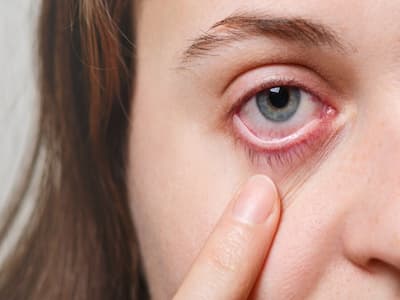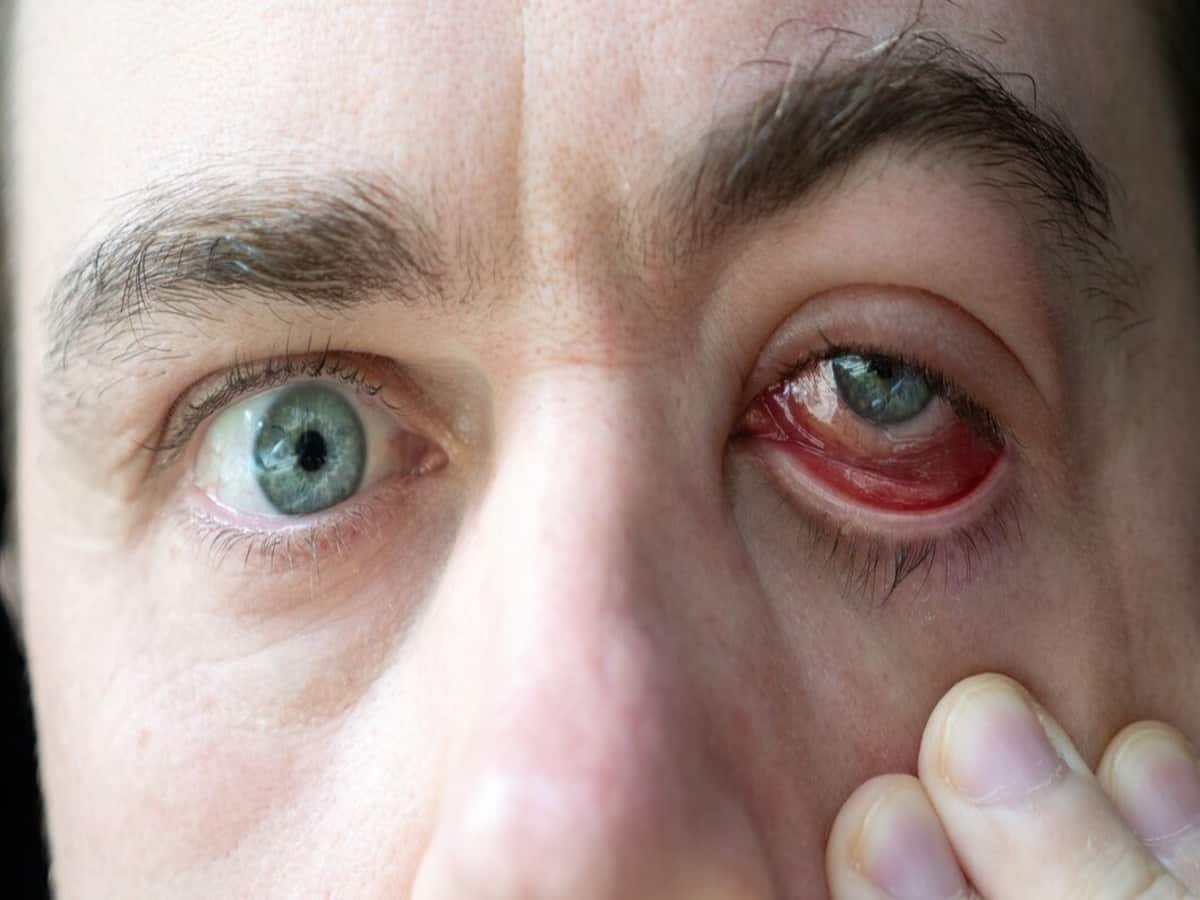Amid STD Epidemic In The US A Rise In Symptoms Of Eye Syphilis: What Is It? | TheHealthSite.com - TheHealthSite

According to news reports, patients have recently started to complain of vision and eye problems, headaches and hearing loss or dizziness caused by the sexually transmitted infection syphilis.
In the US, there is a current epidemic of syphilis amid which, doctors are also seeing a worrisome trend of patients presenting with 'unusual vision and eye symptoms'. According to news reports, patients have recently started to complain of vision and eye problems, headaches and hearing loss or dizziness caused by the sexually transmitted infection syphilis. A CNN report stated that doctors have long known that syphilis can 'permanently damage' a person's vision and hearing, and even lead to 'psychiatric changes'. But, these symptoms are usually seen with infections that have been 'undiagnosed and untreated' for years.
In a new study presented recently at the 2024 Epidemic Intelligence Service Conference in Atlanta, researchers said there were 'more than two dozen cases with these kinds of symptoms' in Chicago last year, and a third of them were in the early stages of infections.
According to a People report, a January 2024 Centers for Disease Control and Prevention (CDC) report stated that more than 2,07,000 Americans were diagnosed with syphilis, the highest reported number since the 1950s. The CDC warns that without treatment, syphilis can spread to the brain and nervous system (neurosyphilis), the eye (ocular syphilis), or the ear (otosyphilis).
Also Read
More News
What Is Syphilis And How Does It Spread?
According to the CDC, syphilis is a sexually-transmitted infection (STI) that can cause serious health problems without treatment. Infection develops in stages (primary, secondary, latent, and tertiary), and each stage can have different signs and symptoms. One can contract syphilis by direct contact with a syphilis sore during vaginal, anal, or oral intercourse. It can also spread from a mother to her unborn baby. Syphilis, however, does not spread through casual contact with objects like toilet seats, doorknobs, swimming pools, hot tubs, bathtubs, sharing clothing, or eating utensils.
Signs And Symptoms Of Syphilis
As mentioned earlier, there are four stages of syphilis: primary, secondary, latent, and tertiary. Each stage has different signs and symptoms, the CDC states.
Primary Stage
You may notice a single sore or multiple sores; the sore is the location where syphilis entered your body. These sores usually occur in, on, or around the male genitalia; vagina; anus; rectum; and lips or in the mouth. Sores are usually (but not always) firm, round, and painless, and because they are painless, you may not notice them. They last 3 to 6 weeks and heal regardless of whether you receive treatment. But, even after the sore is gone, you must receive treatment.
Secondary Stage
You may have skin rashes and/or sores in your mouth, vagina, or anus. It usually starts with a rash on one or more areas of the body. The rash can show up when the primary sore is healing or several weeks after the sore has healed. The rash can be on the palms and/or the bottoms of your feet. They are rough; red; or reddish-brown. The rash usually does not itch. Other symptoms are: fever; swollen lymph glands; sore throat; patchy hair loss; headaches; weight loss; muscle aches; and fatigue. The symptoms will go away whether you receive treatment. Without the right treatment, your infection will move to the latent and possibly tertiary stages of syphilis.
Latent Stage
There are no visible signs or symptoms. Without treatment, you can continue to have syphilis in your body for years.

Tertiary Stage
Most people with untreated syphilis do not develop tertiary syphilis. When it does happen, it can affect many different organs, including the heart and blood vessels, and the brain and nervous system. It is very serious and occurs 10-30 years after the infection started. Tertiary syphilis can also result in death.
Ocular Syphilis And Otosyphilis
The signs and symptoms of ocular syphilis include:
- Eye pain and/or redness
- Changes in your vision or even blindness
Signs and symptoms of otosyphilis may include:
- Hearing loss
- Ringing, buzzing, roaring, or hissing in the ears
- Dizziness or vertigo (feeling like you or your surroundings are moving or spinning)
Doing Appropriate Screening
Lead study author Dr Amy Nham -- who works with the Chicago Department of Public Health, told CNN: "Providers definitely need to be screening more and be aware that this is what we're seeing." The latest study findings also suggest that the most common symptoms reported by patients are 'headache', 'personality changes', 'altered mental status' and 'eye problems like vision loss, light sensitivity or eye swelling', per the outlet. "They're not the most specific symptoms, which is why it is really important that providers are doing appropriate screening and asking patients for risk factors," Nham added.
Don't Miss Out on the Latest Updates.
Subscribe to Our Newsletter Today!

Comments
Post a Comment